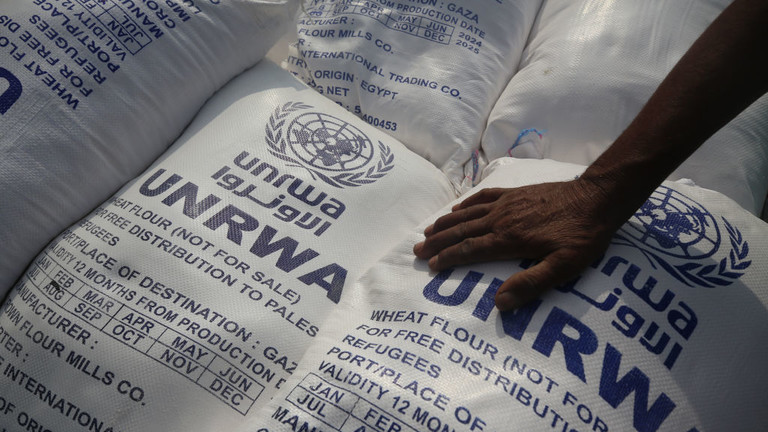World
Israel Cancels Agreement with UN Agency for Palestinian Refugees (UNRWA)

Israel has officially nullified its agreement with UNRWA, the United Nations agency responsible for aiding Palestinian refugees, raising questions about the future of humanitarian efforts in the region. Learn more about the decision and its implications.
Israel has formally informed the United Nations that it is ending a 1967 agreement with the United Nations Relief and Works Agency for Palestine Refugees in the Near East (UNRWA).
West Jerusalem has alleged that the organization is connected to Hamas and other Palestinian militant groups. The Israeli parliament enacted legislation last week prohibiting the UN agency’s activities within the country.
The UNRWA was founded in 1949 to address the needs of Palestinian refugees after the creation of Israel resulted in the Arab-Israeli war. In 1967, post-Six-Day War, Israel asked the agency to maintain its activities in Gaza and the West Bank, a request that it agreed to accommodate.
Foreign Minister Israel Katz stated on Monday that “UNRWA, an organization whose employees were involved in the October 7 massacre and many of whom are associated with Hamas, is part of the problem in the Gaza Strip rather than a solution.”
He additionally mentioned that extensive evidence was provided to the UN regarding Hamas operatives working at UNRWA and the use of its facilities for terrorist activities, yet no action was taken.
The UN agency has refuted the accusations, stating that it implements measures to maintain its impartiality. In August, UNRWA dismissed nine staff members due to their potential involvement in hostilities but noted that there was insufficient evidence against ten others.
READ ALSO: Iranians Call Israel’s Attack ‘Expected but Stressful’ Amid Rising Tensions
Israel’s decision to take action against UNRWA has led to significant international criticism. Countries including Canada, Australia, France, Germany, Japan, South Korea, and the UK have urged Israel not to ban UNRWA while expressing “grave concern” about the humanitarian situation in Gaza.
Katz refuted the assertion that there is no alternative to UNRWA by pointing out that most humanitarian aid is provided through other organizations, with the UN agency managing only 13% of Gaza’s assistance.
“The foreign minister stated that the State of Israel is dedicated to adhering to international law and will persist in permitting humanitarian aid into the Gaza Strip, ensuring it does not jeopardize Israeli citizens’ security.”
UNRWA spokesperson Jonathan Fowler informed AFP on Monday that the Israeli restriction on its operations “could potentially lead to the collapse of international humanitarian efforts in the Gaza Strip…”
On Monday, the World Food Programme (WFP) cautioned that Gaza’s humanitarian crisis “could soon escalate into famine.” Martin Frick, who leads WFP’s Berlin office, informed German media group RND on Saturday that the agency is unable to “replace crucial roles of UNRWA in Gaza, including managing emergency shelters, schools and health centers.”
As stated on the UNRWA website, funding for the organization comes almost exclusively from voluntary contributions by UN member states. It offers a wide range of services including education, healthcare, relief and social assistance, camp infrastructure support, microfinance opportunities, and emergency aid.
